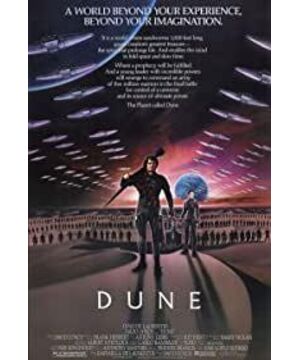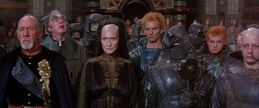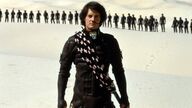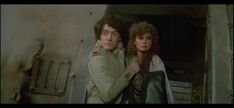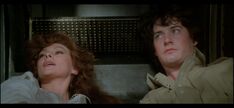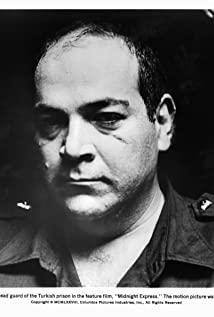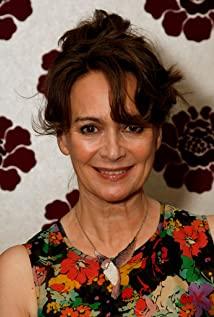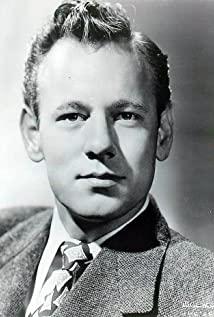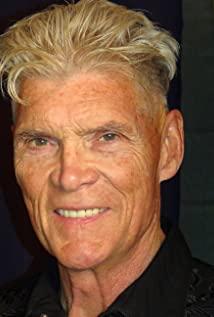Author: Paul Mandell
Translator: csh
Source: Starlog
The translation was first published in "Iris"
Since the "Dune" team settled in, the Churubusco Studio in Mexico City has become different. First of all, the food in the small shop has changed. The original tortillas and hard coffee gave way to spinach pasta and fragrant cappuccino. This is one of the many intercontinental influences brought by the producer Rafaela de Laurentiis. However, this year's main course is "Dune". Frank Herbert, this epic science fiction legend, after ten years of hardship, obtained eight huge shooting areas and 70 sets of sets.
We can see the water-rich planet of Karadane. The plants there are very rich, everything is green or brown, and they are all made of wood. The tiled floor is reminiscent of the emotions of the Aztecs and Venetians, but the patterns on the beams and arches are reminiscent of derivatives of vehicles. There are deep purple caves of the Freemans and fifty-foot-long, indescribable sandworms. In addition, we can also see the industrial wasteland on the planet Jidipuma. In this place, the avant-garde creator David Lynch who directed "Dune" will undoubtedly feel at home.
Lynch was neatly dressed in a leather jacket, a buttoned white shirt, and twill pants. He wears sunglasses and speaks confidently. And, apart from the occasional low-key snicker-as if he told himself a better joke-there is no clue as to whether he is lying to you. Only one thing is certain: Lynch is one of the most original directors in the history of the film industry.
Reporter: You are very famous for your amazing use of black and white photography. It's hard to imagine a colorful "Rubber Head" or "Elephant Man". However, you are now in Mexico, directing a $50 million color science fiction film. Would you think of it as a black and white movie?
David Lynch: I would love to shoot it in black and white, but it is indeed in color. I don't think there is anything wrong. I hope it is partially black and white. Who knows? Perhaps at some point, it may slide towards black and white images. I might want to reduce the saturation of the color. Some things are more suitable to be expressed in black and white, such as certain specific feelings.
Reporter: Your photographer Freddie Francis said that you think in black and white.
Lynch: Did Freddie say that? I have to think about what I should say about him.
Reporter: You seem to be obsessed with industrial images. "Rubber Head" is a bit like a Freudian industrial nightmare. In a marginal sense, "The Elephant Man" also contains many such elements.
Lynch: This characteristic of "Dune" is more obvious. I love industry. I like tubes. I also like liquids and smoke. I love artificial things and machines that make things. I like watching people work hard and watching sludge and man-made waste. I like to look at the way nature treats these things, and the juxtaposition of man-made objects and nature.
Reporter: The generator in "Dune" looks like a tubular monster.
Lynch: Yes, um, there are a lot of things in "Dune" that make me happy, but it is not an industrial movie. Jidipuma is a planet in "Dune", to me, it looks like an industrial planet. It is a planet made of black oil, steel and ceramics, but it is also different from American factories.
Reporter: How did you start to write the script? This book is extremely complicated.
Lynch: I find it difficult for everyone to enter the first 60 pages. But after that, it starts to work for you. Because it is a very long book, it is inherently problematic-you try to stay true to the content of the book, but you still lose something. What you lose is also very important, but how do you deal with the rest and make it cinematic is another matter. Sometimes, movies can condense text well. It only takes a word of Frank Herbert to derive a lot of images. But I just acted on my own feelings. The only people who saw them were Dino and LaFira de Laurentiis. The only problem with my previous draft was the length. Clarity. Sometimes, I will be more involved in dreams and strange things, but now I have found a balance. For me, Frank Herbert is the same. It took me a year and a half to write the script, and I have been adjusting it ever since.
Reporter: How did the "Dune" team approach you?
Lynch: Dino's office called me and asked if I had read Dune. I thought they were talking about "June." I have never read either of these two books! But when I picked up the book, I seemed to have accepted a new word. I started to hear this term more frequently. Then, I found that my friends had already watched it, and they were all frightened after watching it. It took me a long time to read it. Actually, my wife forced me to read it. I didn't like it very much at first, especially the first 60 pages. But the more I read, the more I like it. Because there are so many things I like in "Dune", I said, "This is a book that can be made into a movie." I was very excited about this, so I had a few meetings with Dino. The main reason he hired me was really "The Elephant Man." He wanted a science fiction movie about people, not a bunch of space machines. There are many things in my heart that he doesn't know. I like machines, I like space, and I like dreams. Dino has never watched "Rubber Head", in fact, he probably hates it. It's not something he likes, but Mel Brooks is crazy about it. So, I have been very lucky. The producers love the last film I made, and I can grow and show more things in each subsequent project.
Reporter: Have you tried to bring the quirks of "Rubber Head" to "Dune"?
Lynch: First of all, this movie will be PG grade. This news may help you a little bit. I can think of some strange things, but if I can make PG-level works, many things will become more free. I like to deviate from the track. Although there are some things I can't do here, they are really peculiar and exciting. We haven't started making montages yet. There will be many interesting clips in "Dune". Now, I hope I have time to continue experimenting and manipulating these materials in post-production. Because we have some very good raw materials. But it requires special treatment. Our biggest problem is still length. I know we will cut "Dune" very long and rough at first. Therefore, we are still not out of the predicament.
Reporter: What makes you interested in rotten objects? So far, this is a recurring theme in your movies.
Lynch: Well, if you put a piece of steel on a clearing—in the beginning, steel may look good, but this is still a “slow” area. Then nature began to work on it. Soon, steel became a wonderful thing! It's like smoke coming out of a chimney. The new chimney is one thing, the old chimney is another-years of high temperature, black smoke and hair will accumulate in it, right? One side of the building was pitch black, with broken windows everywhere, and rotting plants clogged inside. This is great stuff! You need the joint efforts of nature and mankind to get this kind of thing.
Reporter: Why are you generally opposed to making color films?
Lynch: I don't have one. When you see "Dune", I don't think you think this guy has a skin color problem. It's just that black and white are too pure. Because it is pure, everything is raised to a certain level. Their power has become greater. Next, you have to match black and white sounds, which is also a tricky thing. Sound is too important to me. If it is just an image, there will be a sense of exhaustion. Sound can make them more real, especially sound effects. Because of this, I can’t wait to work with Alan Spleite to add appropriate sound effects to these images. He did all the effects for "Rubber Head" and "The Elephant Man". We haven't talked about any real technical issues, all I can say is "image determines sound." We have to find a voice that portrays the right emotions before we move on to the next shot. Currently, Allen has made about 180 sets of sound effects. Every time I hear a sound, an image pops up in my mind. Then, I will have an idea, which is driving me crazy.
Reporter: From the under-budgeted "Rubber Head" to the somewhat expensive "Elephant Man" to the $50 million film-the most expensive project in the history of Universal Pictures-how do you feel?
Lynch: I won't be at a loss because I don't know anything about money. But I don't need to deal with this matter like LaFira. For her, $50 million is much more real. I feel that I am responsible for both Dino and LaFira, and I can't mess around and waste money. I don’t need to hire or fire employees. I just need to worry about what will happen in the movie... and getting up from bed in the morning.
I need to do two things. I not only want to please myself, but I also need to please more people. When shooting "Rubber Head", I just need to please myself. In "The Elephant Man" and "Dune", I want to please myself as well as others. If you choose a compromise strategy, such as, "Well, let this person and myself have half each", this is a wrong approach. Sometimes, you have to find a completely different solution to the problem so that you can get excited again. This is why I live in harmony with Dino. Every time he finds a problem, I will not compromise, I will come up with another plan. Then he will become very happy because he sees me doing something. I think of him in my mind, but I have to work hard to come up with a less lethal plan. I know that this movie has a certain inevitability, and all the ideas in it are not just related to me. Therefore, I must accept the opinions of others, which is a very difficult task.
Reporter: In a movie with such a peculiar technology like "Dune", do you easily lose contact with human emotions?
Lynch: Not exactly. What we present is a state of time different from reality. In the beginning, all of our scenes took place between the characters in the room. One or two people interact with others, nothing more. We focus on all human responses. In a work like "Star Wars", the dependence on special effects is much more severe, and the role of humans will also be affected. They don't really care about these roles, they are just people. The situation in "Dune" is completely different.
Reporter: Do you like working with actors?
Lynch: I like it. It, like many other jobs, is a form of communication. You have to rehearse coldly first. This process is usually the worst. However, you will suddenly think of a starting point, so you start talking until you find something. Then you start shooting. It's that simple. Sometimes, you can get some real magic from something that doesn't seem to work. The people in "Dune" do a lot of different things, they are more than monotonous actors. I think this is like playing a really good violin. You can make a beautiful high pitch. I never thought I would like to work with actors. But now I have really changed my mind.
Reporter: If you could decide, what would you do if you didn't make a movie?
Lynch: I will be a builder of a shed. If I stay alone, I will build a shed. I will plan their structure at the "Bob's Big Boy" coffee shop, and I will be very excited to taste the coffee and chocolate milkshakes in the shop. When I leave the coffee shop, I will bring back the floor plan of some parts of the shed, right? Then, I will find suitable wood, I will start to cut them with an electric saw, nail them, install them, and finally process them. I will enter heaven with happiness. For me, this is pretty good. Sometimes, painting also gives me this feeling...
Reporter: Do you consider yourself a failed artist?
Lynch: To some extent, yes. You know, as long as I am painting, I will feel like an artist. I like art life, and I believe in art life 100%. There are rules in art life-I broke a lot of rules. In some ways, art life is Henry in "Rubber Head". If Henry was a painter, it would be perfect. He has no friends. He can stay alone, right? You live alone, go deep into yourself, and capture your own thoughts. You can do anything, but you have to think. You have to make all preparations to capture that precise idea. It takes time. Therefore, you must have time to think alone, and you cannot turn on your own TV. You must be in a stimulating environment-like a room in a Philadelphia hotel. Once you have emotions, you can start capturing ideas.
Reporter: Do you think you are closer to the 1950s? To you, other eras don't seem to be as important as the 1950s.
Lynch: Of course, the 1950s are very important to me. I like the Beatles. After they came on stage, everything went smoothly. I also like the era before the Beatles, even back to the 1920s. From the 1920s to 1958, maybe 1963, it will be my favorite era. I can find the emotion I like in anything during that time. For me, the 70s was the worst period. There may be things I like in the 1980s—high-tech, new wave, and things that echo the 1950s. But the seventies-an era made up entirely of leather and hair. There is nothing there. Rock music in the 1950s was "closer to the original idea." Therefore, this idea is very powerful.
Reporter: Do you feel that you always want to make the tone of the scene softer and less bright?
Lynch: As I said, what I like is not dark movies, but emotions and contrasts. So, some things should be dark, especially when things get weird. But I also like bright things. Arakis is one of the hottest planets in the universe, so it must be very, very bright at certain moments. I also tend to present very, very dark things.
Reporter: A movie worth 50 million dollars, no one can see it clearly...
Lynch: Yes, yes. I argued with Freddy many times, so it's not an argument, I just begged him to shoot darker. On the other hand, Dino begged him not to listen to me and brighten the picture. I think Freddie is worried that if many places in "Dune" are too dark, everyone may not be able to see clearly. but it is not the truth. You can see a lot of things. Let's wait and see!
View more about Dune reviews


